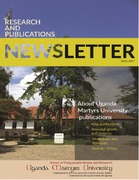| dc.description.abstract | This case study departs from the assumption that municipalities can and should play a strategic role in either directly managing or availing assistance to private clean energy project developers (under a PPP arrangement) to gain access to important sources of revenue (mainly CDM and REFIT) that make investment financially attractive. The benefits to a municipal government of having local production plants within their jurisdictions include jobs, tax revenue, and reduction in environmental impacts of, for example, untreated wastewater, etc. Municipal and Town councils are in a unique position to provide many incentives for the setup, including land, tax breaks, and especially political leverage/ negotiating position with Ministry and other relevant regulators whose approvals are necessary for a renewable energy projects to tap the revenue sources discussed herein. As with anything, the council, mayor and other relevant decision-makers must work in concert to allow such a thing to happen and for that there must be mutual agreement of the benefits of the project to all involved (nation, district, urban centre, and the private developer) and the various departments must work on a common strategic plan. | en_US |


